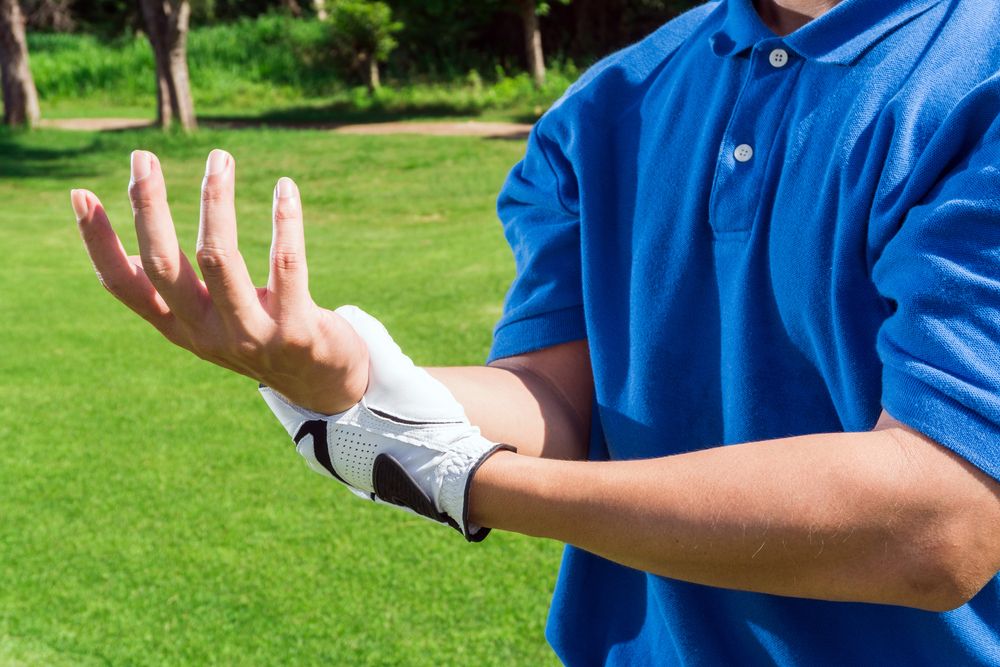
Golf and tennis are extremely popular pastimes. In the spring of 2017, more than 25 million American’s had played a round of golf in the last twelve months, while the latest research shows that tennis participation in the U.S. has grown to just under 18 million players. However, both of these sports require a repetitive movement that leaves many participants in some degree of pain.
Known by golfer’s as ‘golfer’s wrist’ and tennis players as ‘tennis wrist’, the most common pain experienced by players of both of these sports is normally a form of repetitive strain injury, or RSI. However, other injuries requiring medical intervention can also occur. Keith Raskin, MD at The Raskin Center for Hand, Wrist & Elbow Surgery in Manhattan, NY successfully treats a range of repetitive strain injuries, including cases of Golfer’s wrist and Tennis wrist.
What causes golfer’s and tennis wrist?
There are several types of injury experienced by golfers and tennis players and these are characterized by the location and severity of the pain, as well as any limitations to the field of movement that the patient experiences.
Tendonitis in the hand and wrist
By far the most common type of repetitive strain injury seen in both golfers and tennis players is tendonitis. There are two main groups of tendons in your wrist, one on the back side which work to extend or straighten the wrist and/or fingers, and one on the palm side which bends the wrists and fingers. However, tendonitis in the tendons on the back side is much more common.
These tendons run through narrow tunnels known as sheaths, but when the tendons are overused or stretched, they can become trapped within the sheaths, causing inflammation and pain. This is classed as tendonitis.
Tendonitis tends to take several weeks or even months to develop. However, if you have had a heavy weekend on the tennis court or greens, you may find that you have over-exerted the muscles and tendons and caused tendonitis to come on suddenly.
Sprains, tears and fractures in the wrist
Sprains, tears and fractures are generally less common injuries, but they can be significantly more serious and require greater medical intervention. Ligaments on the pinkie-side of the hand and wrist can be sprained or torn, causing pain that spreads upwards into the forearm and towards the elbow. Meanwhile, fractures in golfers and tennis players normally occur in the small carpal bones.
Unlike tendonitis, most sprains, tears and fractures occur as a result of sudden movement that places too much tension on the ligaments, tendons and muscles in the wrist.
Treatment for golfer’s wrist or tennis wrist
Rest is the one of the first options that Dr. Raskin will recommend for a repetitive strain injury. Healing can only take place when you stop exerting the same pressures on your wrist that caused the injury in the first place. You may be recommended to take a break for several weeks or several months, depending on the severity of your injury. This will allow enough time for the irritation and swelling to subside, which should ease your discomfort.
You will also likely be advised to try a combination of hot/cold therapies and anti-inflammatory medications which will also support reducing the swelling and irritation that is normally experienced by people with RSI-related injuries.
In the case of tears or fractures, in addition to supporting devices such as slings or splints, more invasive treatment may be required. However, each case is unique, and we would advise that you seek the advice of a qualified and experienced hand or wrist surgeon, such as Dr. Raskin, to discover what the best treatment options are for your personal circumstances.
If you are suffering from pain as a result of playing golf or tennis, you could be suffering from golfer’s wrist or tennis wrist. Our renowned hand and wrist specialist, Dr. Raskin, would be delighted to offer you his professional opinion and advise you which treatment can help get you back to enjoying the pastime that you love as soon as possible. Please do not hesitate to call us today for a consultation at 212-889-8600.







